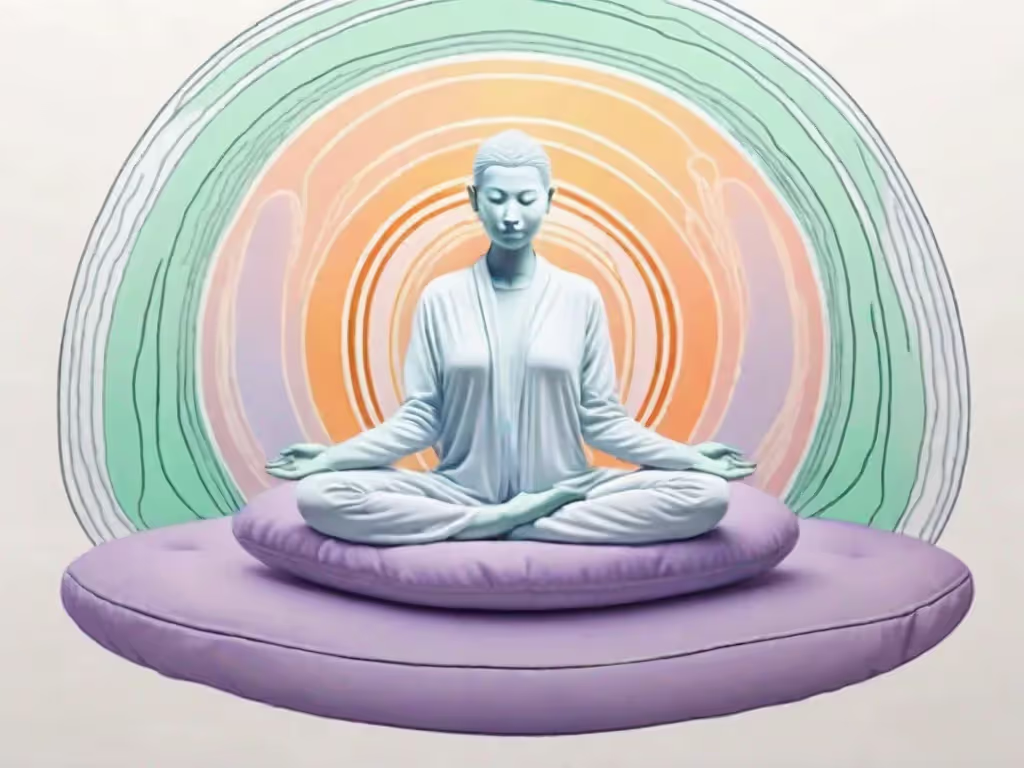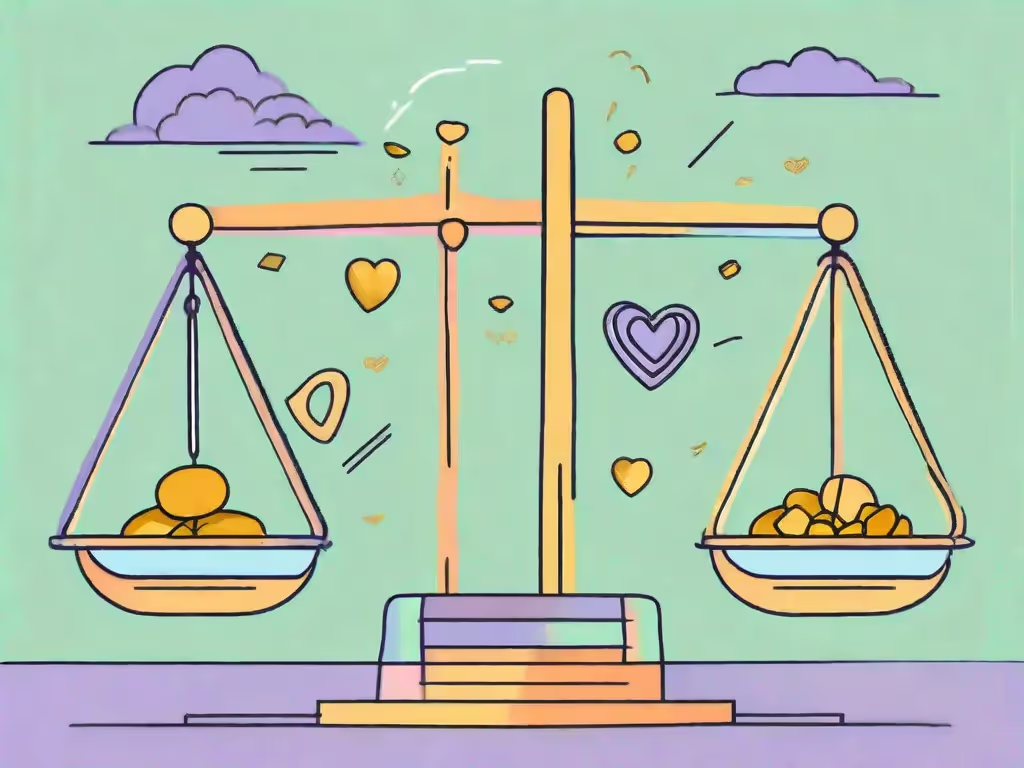If you have ever taken Zoloft or are currently taking it, you may have experienced some of the common side effects. One such side effect that often leaves people puzzled and uncomfortable is night sweats. But does Zoloft really cause night sweats? In this article, we will delve into the key aspects of Zoloft, its side effects, and explore the possible connection between this popular antidepressant and night sweats.
Understanding Zoloft: What is it and How Does it Work?
Before we dive into the topic, let's gain a better understanding of Zoloft itself. Zoloft, also known by its generic name sertraline, is a selective serotonin reuptake inhibitor (SSRI). It works by increasing the levels of serotonin, a neurotransmitter, in the brain. This boost in serotonin is believed to help regulate mood and reduce the symptoms of depression and anxiety.
Zoloft is a medication that has had a significant impact on the treatment of mental health disorders. It has become one of the most commonly prescribed medications for treating depression and anxiety, with millions of people worldwide benefiting from its effects. By targeting the chemical imbalances in the brain, Zoloft aims to restore the emotional equilibrium that many individuals strive for.
Fall Asleep Faster and Stay Asleep Longer: Meet Aura, the #1 App for Sleep Sounds, Sleep Stories, Sleep Meditations, and More. Try it Free!
The Role of Zoloft in Treating Depression and Anxiety
Zoloft has proven to be effective in alleviating symptoms associated with depression and anxiety. These symptoms can include persistent sadness, loss of interest, changes in appetite, and difficulty concentrating. By increasing the levels of serotonin in the brain, Zoloft helps to regulate mood and improve overall well-being.
Depression and anxiety are complex conditions that can have a profound impact on a person's daily life. They can affect relationships, work performance, and overall quality of life. Zoloft offers hope and relief to those who struggle with these mental health disorders, providing them with a chance to regain control and find stability.
The Mechanism of Zoloft: How it Affects the Brain
To comprehend how Zoloft might potentially cause night sweats, it is crucial to understand its mechanism of action. As an SSRI, Zoloft inhibits the reuptake of serotonin in the brain, allowing more of this mood-regulating neurotransmitter to remain available. By increasing the levels of serotonin, Zoloft helps to improve communication between brain cells and regulate mood.
While the precise relationship between serotonin levels and night sweats remains unclear, it is believed that changes in serotonin activity may contribute to the occurrence of this side effect. Serotonin is involved in regulating body temperature, and alterations in its levels can potentially disrupt the body's natural thermoregulation processes, leading to night sweats.
It is important to note that not everyone who takes Zoloft will experience night sweats, and the occurrence of this side effect varies from person to person. If you are concerned about night sweats or any other side effects while taking Zoloft, it is always best to consult with your healthcare provider for guidance and support.
Zoloft and its Common Side Effects
As with any medication, Zoloft comes with its fair share of potential side effects. It is important to note that not everyone experiences these side effects, and their severity may vary from person to person.
When taking Zoloft, it is common to experience some side effects. However, it is essential to remember that these effects are generally mild and temporary, subsiding as the body adjusts to the medication. In most cases, individuals can continue taking Zoloft without significant disruption to their daily lives.
The Most Frequently Reported Side Effects of Zoloft
Among the most frequently reported side effects of Zoloft are nausea, diarrhea, headaches, and insomnia. These side effects are generally mild and temporary, subsiding as the body adjusts to the medication. However, in some instances, they can persist and become bothersome.
Nausea is a common side effect of Zoloft, and it is usually experienced during the initial stages of treatment. This discomfort can be alleviated by taking the medication with food or adjusting the dosage under the guidance of a healthcare provider.
Diarrhea is another side effect that may occur when starting Zoloft. It is important to stay hydrated and consume a balanced diet to minimize this effect. In most cases, the body adapts to the medication, and the diarrhea subsides over time.
Headaches can also be experienced as a side effect of Zoloft. These headaches are typically mild and can be managed with over-the-counter pain relievers. If the headaches persist or become severe, it is advisable to consult a healthcare professional for further evaluation.
Insomnia, or difficulty sleeping, is another common side effect of Zoloft. This may occur due to the medication's impact on serotonin levels in the brain. Establishing a consistent sleep routine, practicing relaxation techniques, and discussing potential adjustments to the dosage or timing of medication with a healthcare provider can help manage this side effect.
Understanding the Severity and Duration of Zoloft Side Effects
It is essential to recognize that side effects can vary in severity and duration. While most individuals experience only mild discomfort, some may encounter more troublesome effects that significantly impact their daily lives. If you find yourself experiencing severe or persistent side effects, it is crucial to consult your healthcare provider for guidance.
In rare cases, individuals may experience severe allergic reactions to Zoloft, such as swelling of the face, lips, or tongue, difficulty breathing, or hives. If you notice any of these symptoms, seek immediate medical attention.
Additionally, some individuals may experience changes in mood or behavior while taking Zoloft. It is important to monitor any shifts in emotional well-being and promptly communicate them to a healthcare provider. They can assess whether these changes are related to the medication or require further evaluation.
Remember, everyone's experience with Zoloft and its side effects can be different. It is crucial to have open and honest communication with your healthcare provider to ensure the most effective and safe treatment plan for your specific needs.
Zoloft and Night Sweats: Is There a Connection?
Now, let's address the elephant in the room – the potential connection between Zoloft and night sweats. While night sweats are not specifically mentioned as a common side effect of Zoloft, many individuals have reported experiencing them while taking the medication.
Analyzing Clinical Studies and Patient Reports
Although clinical studies have not definitively established a causal link between Zoloft and night sweats, there exists a significant number of anecdotal reports suggesting a possible association. It is important to emphasize that individual experiences can vary, and not every Zoloft user will experience night sweats.
The Science Behind Zoloft-Induced Night Sweats
While the exact mechanisms behind Zoloft-induced night sweats remain unclear, some theories propose that the medication's impact on serotonin levels may be involved. Serotonin plays a role in regulating body temperature, and alterations in its activity could potentially disrupt the body's thermoregulatory system, leading to night sweats.
Managing Night Sweats Caused by Zoloft
If you are experiencing night sweats while taking Zoloft, there are several strategies you can employ to help manage this side effect.
Lifestyle Changes to Reduce Night Sweats
Firstly, consider making some lifestyle changes that may help alleviate night sweats. These include avoiding excessive caffeine and alcohol consumption, creating a cool and comfortable sleep environment, and engaging in relaxation techniques before bed.
Medical Interventions for Night Sweats
If lifestyle modifications fail to provide relief, consult with your healthcare provider about potential medical interventions. They may consider adjusting your dosage, switching to a different medication, or prescribing additional medications or supplements to mitigate night sweats.
When to Consult a Doctor
While night sweats can be a common side effect of medications, it is essential to recognize when they may signal a more significant issue.
Recognizing When Night Sweats are a Cause for Concern
If your night sweats are accompanied by other concerning symptoms, such as fever, weight loss, or prolonged night sweats that persist beyond a few weeks, it is crucial to seek medical attention. These symptoms may indicate an underlying medical condition that requires evaluation and treatment.
Discussing Zoloft Side Effects with Your Healthcare Provider
If you are experiencing night sweats or any other bothersome side effects while taking Zoloft, do not hesitate to discuss them with your healthcare provider. They can provide guidance, support, and recommend appropriate steps to manage these side effects while ensuring the continued effectiveness of your treatment.
In conclusion, while the relationship between Zoloft and night sweats is not fully understood, many individuals have reported experiencing this side effect. If you are among those affected, remember that there are ways to manage and alleviate night sweats. By implementing lifestyle changes and discussing your concerns with your healthcare provider, you can work towards finding a solution that allows you to continue benefiting from the therapeutic effects of Zoloft.
And if you're looking for additional support in managing your mental health, consider using the Aura Health App. This user-friendly app provides a range of mindfulness exercises, guided meditations, and sleep-related tools to help improve your overall well-being. With Aura, you can take an active role in nurturing your mental health and living a more balanced life.
Aura is Your All In One App for Meditation, Mindfulness Wellbeing
Find peace every day with one app for your whole well-being. There is no one-size-fits-all solution to mental well-being. Aura is the first all-in-one wellness app that learns how to best help you. Discover an endless library of expert-created tracks for your well-being, all taught by the world’s best coaches, therapists, and storytellers. With Aura's personalized recommendations, you can find peace every morning, day and night.



.webp)






.avif)

%20(1).avif)


.avif)
.avif)
.webp)


.avif)


















































































































.avif)

















.svg)









